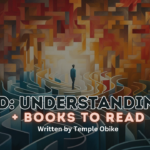Over the past 13 years as a psychotherapist i have seen paranoia and anxiety present themselves in different ways. Individuals, couples and organizations have been destabilized via individuals suffering from one or both of these conditions. Questions have poured in via email and i recently noticed an uptick in the need to understand the conditions indepth by various arms of society. This need gave rise to the article you are about to read.
Paranoia and anxiety, though distinct in their manifestations, are both formidable challenges to one’s mental well-being. Delving deeper into their characteristics and exploring tailored coping strategies can offer invaluable support to individuals grappling with these conditions. Let’s embark on a comprehensive exploration, shedding light on the nature of paranoia and anxiety, comparing their nuances, and expanding on practical coping mechanisms for each.
Unraveling Paranoia and Anxiety
1. Paranoia: Rooted in irrational beliefs and suspicions of others’ malevolent intentions, paranoia engenders a profound sense of distrust and fear. Those affected may experience heightened vigilance, interpreting innocuous actions as threats, leading to social withdrawal and impaired functioning.
2. Anxiety: Anxiety manifests as persistent worry and apprehension about future events or uncertain outcomes. From generalized anxiety disorder to specific phobias and panic attacks, anxiety disorders encompass a spectrum of distressing experiences, often accompanied by physical symptoms like rapid heartbeat and trembling.
Comparing Paranoia and Anxiety
A)Cognitive Landscape: Paranoia tends to revolve around fixed delusions or suspicions, while anxiety encompasses a broader array of concerns, ranging from social interactions to performance expectations.
B)Emotional Terrain: Paranoia triggers intense fear and suspicion, fostering a profound sense of threat and vulnerability. Anxiety, on the other hand, elicits a spectrum of emotions, including fear, apprehension, and nervousness, often fluctuating in intensity.
C)Functional Impact: Paranoia’s grip extends to interpersonal relationships, fostering isolation and distrust, while anxiety may hinder productivity and quality of life without necessarily precipitating social withdrawal.
Empowering Coping Strategies: Paranoia
1.Reality Testing: Engage in reality-checking exercises to challenge paranoid beliefs. Encourage open dialogue with trusted individuals to gain perspective on perceived threats.
2. Grounding Techniques: Ground yourself in the present moment through mindfulness practices. Focus on sensory experiences to anchor yourself in reality and alleviate the intensity of paranoid thoughts.
3. Cognitive Restructuring: Collaborate with a therapist trained in cognitive-behavioral techniques to identify and reframe paranoid beliefs. Explore alternative interpretations of situations to foster adaptive coping mechanisms.
4. Medication: In severe cases, consider medication such as antipsychotics or mood stabilizers under the guidance of a psychiatrist to manage symptoms and enhance quality of life.
Empowering Coping Strategies: Anxiety
1. Deep Breathing and Progressive Muscle Relaxation: Employ relaxation techniques to alleviate physical tension and promote a sense of calm. Practice deep breathing exercises and progressive muscle relaxation to cultivate a state of relaxation.
2. Exposure Therapy: Gradually expose yourself to anxiety-provoking situations to desensitize fear responses. Collaborate with a therapist to develop a structured exposure hierarchy tailored to your specific anxieties.
3. Cognitive Reframing: Challenge anxious thoughts through cognitive restructuring. Question the validity of distressing beliefs and explore more balanced and realistic interpretations of situations.
4. Lifestyle Modifications: Prioritize self-care by adopting a healthy lifestyle. Incorporate regular exercise, balanced nutrition, and adequate sleep to bolster resilience and mitigate anxiety symptoms.
5. Therapeutic Interventions: Seek individual therapy, drawing on evidence-based approaches like cognitive-behavioral therapy (CBT) or acceptance and commitment therapy (ACT). Leverage therapy as a platform to cultivate coping skills, explore underlying triggers, and foster resilience.
Seeking Professional Support
If navigating paranoia or anxiety proves overwhelming, do not hesitate to seek professional assistance. Mental health professionals can provide tailored interventions, support, and guidance to facilitate healing and restore a sense of equilibrium. Send us an email on value@templescounsel.com
In summary, by understanding the intricacies of paranoia and anxiety and employing tailored coping strategies, individuals can reclaim agency over their mental health journey. Remember, resilience is within reach, and with the right support, you can cultivate a life characterized by empowerment and well-being.


